First Nations Tax Issues
The Canada Revenue Agency defines the First Nations Tax (FNT), sometimes referred by some as a “community improvement fee”, as a tax imposed on a specific selection of items on various First Nations reserves. This tax has not been enacted on all reserves and it only applies to listed alcohol, tobacco and fuel products that are set by each separate band council. The tax rate is 5% and the CRA is responsible for executing this tax for the First Nations
The First Nations band councils that have imposed the FNT are as follows:
- Westbank, British Columbia
- Tk’emlúps te Secwépemc (used to be known as Kamloops), British Columbia
- Sliammon, British Columbia
- Stz’uminus First Nation (used to be known as Chemainus), British Columbia
- Adams Lake, British Columbia
- Tzeachten, British Columbia
- Cowichan, British Columbia
- Little Shuswap Lake, British Columbia
It is important to note that although the Buffalo Point band council in Manitoba used to impose the First Nations Tax, they no longer apply it (as of October 3, 2011).
The above band councils impose the FNT on alcoholic beverages, fuel and tobacco products with the exception of Sliammon, which only taxes fuel and tobacco products and not alcohol.
The Canada Revenue Agency has published a guide to the First Nations Tax (FNT) which can be accessed HERE.
The information provided above does not constitute legal advice and should not be relied upon as such, since it has been written with a limited picture of the situation. In order to obtain proper legal advice, a lawyer must be aware of all of the details of your particular case. If in doubt, please obtain the advice of a lawyer. You may be eligible to receive a free telephone consultation with a tax lawyer at Barrett Tax Law. For details, call 1-877-8-TAX-TAX today or click here.Items that are subject to FNT are alcohol, fuel and/or tobacco products. Each band council has the option to vote into their bylaws the First Nations Tax and it does not need to impose this tax on all of the above outlined products.
The Canada Revenue Agency has published a guide to the First Nations Tax, which can be found HERE.
The information provided above does not constitute legal advice and should not be relied upon as such, since it has been written with a limited picture of the situation. In order to obtain proper legal advice, a lawyer must be aware of all of the details of your particular case. If in doubt, please obtain the advice of a lawyer. You may be eligible to receive a free telephone consultation with a tax lawyer at Barrett Tax Law. For details, call 1-877-8-TAX-TAX today or click here.The FNT must be reported to the CRA along with the GST/HST. So instead of just listing the GST/HST amount, you will need to add the FNT amount to the total.
The Canada Revenue Agency requires the form, GST499-1 First Nations Tax (FNT) Schedule, to be filled out for every reporting period along with the GST/HST tax return, if the reserve where you sell the listed items imposes the First Nations Tax.
The information provided above does not constitute legal advice and should not be relied upon as such, since it has been written with a limited picture of the situation. In order to obtain proper legal advice, a lawyer must be aware of all of the details of your particular case. If in doubt, please obtain the advice of a lawyer. You may be eligible to receive a free telephone consultation with a tax lawyer at Barrett Tax Law. For details, call 1-877-8-TAX-TAX today or click here.In some cases, members of the First Nations people are not obliged to pay the same amount of taxes as other Canadian taxpayers. The major determining factor is whether or not earnings were made ON a First Nations reserve.
According to section 87 of the Indian Act and paragraph 81(1)(a) of the Income Tax Act, earnings made on a reserve do not need to be reported on your annual income tax return, in addition to products purchased on or delivered to a reserve.
It is important to note that some First Nations groups have a unique tax agreement with the government of Canada or have a self-governing agreement with the government of Canada whereby the information listed above may not apply to your particular circumstance. Contact your First Nations government in order to find out if this applies to you or call the Canada Revenue Agency at 1-800-959-8281.
In addition, personal property and income located on a reserve are also tax exempt according to section 87 of the Indian Act.
For more information about tax obligations by the First Nations people, the CRA has published a web page called, Information for Indians, which can be accessed HERE. Also, there is another web page on the Canada Revenue Agency website that may be helpful: Indian Act Exemption for Employment Income Guidelines
The information provided above does not constitute legal advice and should not be relied upon as such, since it has been written with a limited picture of the situation. In order to obtain proper legal advice, a lawyer must be aware of all of the details of your particular case. If in doubt, please obtain the advice of a lawyer. You may be eligible to receive a free telephone consultation with a tax lawyer at Barrett Tax Law. For details, call 1-877-8-TAX-TAX today or click here.According to the Indian Act, the CRA recognizes an “Indian” as anyone registered or able to be registered as an Indian in the Indian Register. Consequently, in order to be given these tax benefits, Indian and Northern Affairs Canada must confirm said identity.
The information provided above does not constitute legal advice and should not be relied upon as such, since it has been written with a limited picture of the situation. In order to obtain proper legal advice, a lawyer must be aware of all of the details of your particular case. If in doubt, please obtain the advice of a lawyer. You may be eligible to receive a free telephone consultation with a tax lawyer at Barrett Tax Law. For details, call 1-877-8-TAX-TAX today or click here.The website address for the Department of Indian Affairs and Northern Development is www.aadnc-aandc.gc.ca/
The mailing addresses and general telephone numbers for the Department of Indian Affairs and Northern Development (DIAND) are as follows:
Alberta:
630 Canada Place
9700 Jasper Avenue
Edmonton, Alberta T5J 4G2
Telephone: (780) 495-2773
Atlantic Region:
40 Havelock Street
P.O. Box 160
Amherst, Nova Scotia B4H 3Z3
Telephone: (902) 661-6200
British Columbia:
1138 Melville Street, Suite 600
Vancouver, British Columbia
V6E 4S3
Telephone: (604) 775-5100
Manitoba:
365 Hargrave Street
Room 200
Winnipeg, Manitoba
Telephone: (204) 983-2842
Northwest Territories:
P.O. Box 1500
Yellowknife, Northwest Territories P.O. Box 2200
X1A 2R3
Telephone: (867) 669-2500
Nunavut:
1084 Aeroplex Building
Iqaluit, Nunavut X0A 0H0
Telephone: (867) 979-1605
Ontario:
25 St. Clair Avenue East
9th Floor
Toronto, Ontario M4T 1M2
Telephone: (416) 973-6234
Quebec:
320 St-Joseph Street East
P.O. Box 51127, Postal Outlet G. Roy
Québec, Quebec G1K 8Z7
Telephone: (418) 648-7551 or toll-free 1-800-263-5592
Saskatchewan:
2221 Cornwall Street
Regina, Saskatchewan S4P 4M2
Telephone: (306) 780-5945
Yukon:
300 Main Street
Room 345
Whitehorse, Yukon Y1A 2B5
Telephone: (867) 667-3100
The information provided above does not constitute legal advice and should not be relied upon as such, since it has been written with a limited picture of the situation. In order to obtain proper legal advice, a lawyer must be aware of all of the details of your particular case. If in doubt, please obtain the advice of a lawyer. You may be eligible to receive a free telephone consultation with a tax lawyer at Barrett Tax Law. For details, call 1-877-8-TAX-TAX today or click here.







